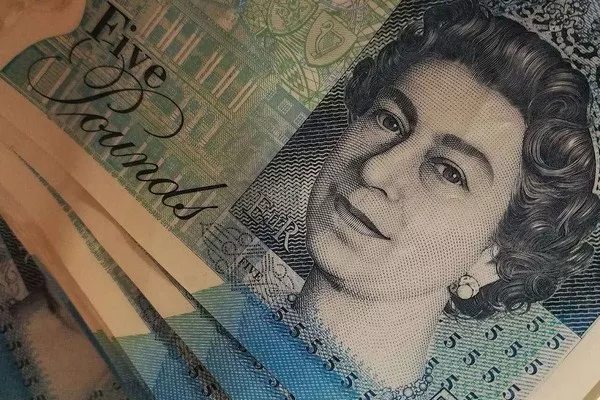In the dynamic landscape of the global economy, currencies play a pivotal role in determining the financial strength of nations. Two prominent players in this arena are the Euro (EUR) and the Pound Sterling (GBP), representing the Eurozone and the United Kingdom, respectively. Investors, economists, and policymakers closely monitor the strength of these currencies as they navigate the intricate web of international trade and finance. In this article, we delve into the factors influencing the strength of the Euro and the Pound, analyzing their economic foundations, historical performance, and current dynamics.
Economic Foundations of the Euro and the Pound
The Euro, introduced in 1999, stands as the official currency for 19 of the 27 European Union (EU) member states. The Eurozone’s collective economic strength and stability significantly impact the value of the Euro. Key factors contributing to the Euro’s economic foundation include the region’s GDP growth, unemployment rates, inflation, and overall fiscal discipline.
On the other side of the English Channel, the Pound Sterling, or the British Pound (GBP), has a rich history dating back to the 8th century. The United Kingdom’s economic health is central to the Pound’s strength. Factors such as GDP growth, employment levels, inflation, and the nation’s fiscal policies play a crucial role in determining the value of the Pound.
Historical Performance: Euro vs. Pound
Analyzing the historical performance of the Euro and the Pound provides valuable insights into their respective strengths. Over the past two decades, the Euro has experienced both highs and lows. In its early years, the Euro faced challenges due to divergent economic performances among Eurozone countries. However, over time, the Euro has demonstrated resilience, weathering economic crises and establishing itself as a major global currency.
The Pound, historically known for its stability, faced significant challenges during the global financial crisis of 2008. The subsequent economic recession and uncertainty surrounding Brexit negotiations further impacted the Pound’s value. However, the Pound has shown resilience, and the UK’s efforts to strengthen its economy post-Brexit have played a role in restoring confidence in the currency.
Current Dynamics: Influencing Factors
As of the latest assessments, several factors contribute to the current dynamics of the Euro and the Pound. One crucial element is the economic recovery from the COVID-19 pandemic. Both the Eurozone and the United Kingdom have implemented stimulus measures to counter the economic downturn, impacting their respective currencies.
The Eurozone, benefiting from a collective approach to recovery, has seen improvements in GDP growth and employment rates. The European Central Bank’s monetary policies and efforts to maintain fiscal discipline have contributed to the Euro’s strength. Additionally, the Euro’s status as the second most widely held reserve currency in the world enhances its global standing.
Conversely, the United Kingdom, while navigating the post-Brexit landscape, has faced challenges. The transition period and the renegotiation of trade agreements have created uncertainties. However, the UK’s successful vaccination rollout and resilient economic policies have bolstered confidence in the Pound. Furthermore, the Bank of England’s proactive measures to address inflation and maintain stability have influenced the Pound’s value.
Trade balances also play a significant role in determining currency strength. Both the Eurozone and the UK are major players in international trade, and their trade surpluses or deficits impact the Euro and the Pound. The ongoing geopolitical landscape, including tensions with Russia and developments in the Middle East, can also influence currency values.
Global Perception and Impact on Exchange Rates
The strength of a currency is not solely determined by economic indicators; global perception also plays a crucial role. Investor confidence, political stability, and overall market sentiment contribute to the perception of the Euro and the Pound.
The Euro, as the currency of a powerful economic bloc, enjoys a favorable global perception. The stability of the Eurozone and the European Union’s commitment to economic integration contribute to the positive image of the Euro. Moreover, the Euro’s role as a competitor to the US dollar in international transactions enhances its standing.
The Pound’s global perception has been shaped by historical stability, but events such as Brexit have introduced uncertainties. However, the UK’s efforts to strengthen its economy, build new trade partnerships, and maintain political stability have positively influenced the global perception of the Pound.
Exchange rates, the numerical representation of currency values relative to each other, are impacted by these perceptions. The Euro-to-Pound exchange rate reflects the relative strength of the two currencies. Changes in economic indicators, geopolitical events, and market sentiment can cause fluctuations in exchange rates, influencing international trade and financial transactions.
See Also What Happens if the GBP Collapses?
Conclusion
In the ever-evolving landscape of the global economy, the strength of the Euro and the Pound is subject to a myriad of factors. Economic indicators, historical performance, current dynamics, and global perception all contribute to the assessment of these currencies. Both the Euro and the Pound have demonstrated resilience in the face of challenges, and their respective economic foundations continue to shape their strengths.
As investors and policymakers navigate the complexities of the international financial system, a nuanced understanding of the Euro and the Pound is essential. While both currencies have faced uncertainties, they also present opportunities for growth and stability. As the global economy continues to recover from the impacts of the COVID-19 pandemic, monitoring the Euro and the Pound’s performance will be crucial for informed decision-making in the realms of trade, investment, and economic policy.


